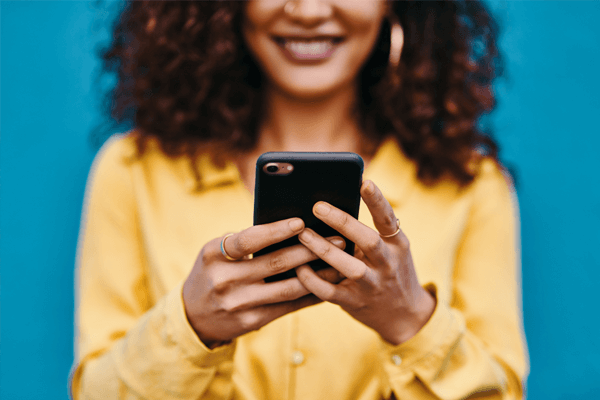
In today’s hyperconnected world, social media has become a dominant part of our daily lives. Platforms like Instagram, Facebook, Twitter, and TikTok keep us informed, entertained, and connected with friends and family. However, this constant connectivity can come at a cost. Increasingly, people are recognizing the need to step back and take a deliberate break from social media. Disconnecting—even for a short period—can offer profound benefits for mental health, productivity, relationships, and overall well-being.
1. Restoring Mental Clarity and Reducing Stress
Social media feeds are designed to capture and hold your attention through endless scrolling, notifications, and updates. This constant bombardment can easily lead to information overload, causing anxiety, stress, and mental fatigue.
Taking a social media break allows your brain to rest from this sensory overload. Without the pressure to stay up-to-date or compare yourself to curated highlights of others’ lives, you regain mental clarity. Many people report feeling calmer and less overwhelmed after disconnecting, even if only for a few days.
2. Improving Sleep Quality
Using social media late at night often interferes with sleep patterns. The blue light emitted by screens disrupts melatonin production, the hormone responsible for regulating sleep. Moreover, engaging with emotionally charged content right before bed can make it harder to relax.
A social media detox—especially in the evening hours—can lead to improved sleep quality. Without the screen stimulation, your body naturally winds down, helping you fall asleep faster and enjoy deeper, more restorative rest.
3. Reclaiming Time and Boosting Productivity
On average, people spend nearly two and a half hours daily on social media. This can significantly cut into time available for work, hobbies, or spending quality time with loved ones. The endless scroll can be a sneaky productivity killer.
When you disconnect, you reclaim this lost time and gain the freedom to focus on activities that matter more to you. Whether it’s reading, exercising, learning a new skill, or simply enjoying moments of calm, a social media break often leads to a more productive and fulfilling day.
4. Enhancing Real-Life Relationships
Social media connects us to many people, but it can sometimes create a false sense of closeness. Likes and comments don’t replace genuine face-to-face interactions or heartfelt conversations. Overuse of social media can even cause people to neglect real relationships.
By stepping away from online platforms, you create space to nurture your real-world connections. You become more present during conversations, more attentive to friends and family, and more invested in shared experiences. Many find that disconnecting improves the quality of their relationships and deepens emotional bonds.
5. Reducing Comparison and Boosting Self-Esteem
Social media often showcases a filtered, idealized version of life. Constant exposure to others’ seemingly perfect moments can fuel unhealthy comparisons and feelings of inadequacy. This “compare and despair” cycle can damage self-esteem and mental well-being.
Taking a break helps you step out of this comparison trap. Without the daily influx of images and stories that may trigger envy or self-doubt, you gain perspective and can focus more on your own journey and achievements.
6. Cultivating Mindfulness and Presence
When you’re not glued to your phone or checking notifications every few minutes, you become more mindful and present. Disconnecting encourages you to observe your surroundings, appreciate small moments, and engage fully in whatever you are doing.
This mindful presence is linked to greater happiness and reduced anxiety. It helps you break free from the compulsive need to be constantly connected and appreciate life beyond the screen.
How to Take a Successful Social Media Break
- Set Clear Goals: Decide how long you want to disconnect and what you hope to gain. Even a weekend offline can make a difference.
- Inform Your Contacts: Let close friends or colleagues know you’ll be offline to manage expectations.
- Remove Temptations: Delete apps from your phone or use app blockers to avoid mindless checking.
- Fill the Void: Plan activities that keep you engaged and fulfilled, like outdoor walks, reading, or hobbies.
- Reflect: Use your break to reflect on how social media affects you and consider healthier habits going forward.
Conclusion
Taking a social media break is more than just turning off your phone—it’s an act of reclaiming your time, mental space, and well-being. Whether you’re feeling overwhelmed, distracted, or just curious, disconnecting offers a powerful way to reset and recharge. In a world dominated by digital noise, stepping away can help you reconnect with yourself and what truly matters.
Refer to these sources for related topics:
https://c2bir.org/
https://seabreezetinyhomes.com/
https://lidolimarangi.it/
https://situspokerbagus.com/
https://mvcfashionn.com/
https://informagiovanicirie.net/
https://ebrain-news.com/
https://cbdisolateherms.com/
https://cbdcrowdfund.com/
https://pokernews.info/
https://rospedia.com/
https://avataresyfirmas.com/
https://onvd.org/
https://thinkingcreatively.org/
https://tvoicelessons.com/
https://halfashoestring.com/
https://ipsecurityforum.it/
https://visitandrun.com/
https://iraq-live.com/
https://fashioncn.org/
https://healthcareforgunner.com/
https://lookoff.co/
https://free-download-casino.com/
https://freshamericannews.com/
https://steelvalleyarts.org/
https://homeinsuredbyus.com/
https://marijuanadispensarynearmeshop.com/
https://simsoncasino.com/
https://fvtlaw.net/
https://atlanticcwm.com/
